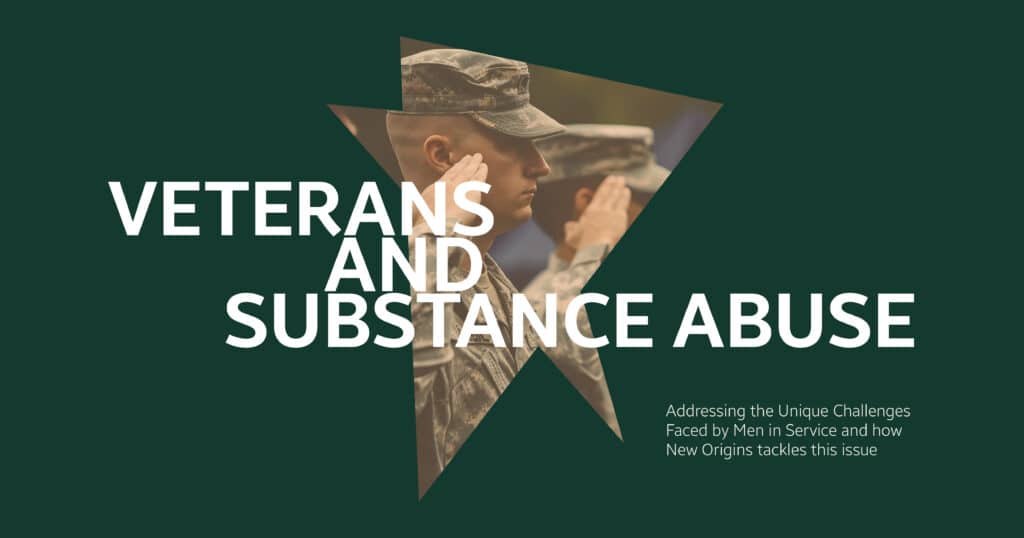
Quick Summary
Veterans face higher rates of substance abuse linked to combat trauma, PTSD, co-occurring mental health conditions like depression and anxiety, and difficulties transitioning to civilian life.
Integrated treatment approaches that address both substance abuse and mental health disorders using evidence-based therapies like cognitive-behavioral therapy and trauma-focused therapies are vital for recovery.
Peer support groups, veteran-specific programs, and increased access to specialized services through the VA system and community organizations can help veterans overcome stigma and find effective support.
Key Takeaways
- Combat-related trauma and PTSD can lead veterans to use substances as a way to cope with psychological and emotional distress from military service.
- Co-occurring mental health disorders such as PTSD, depression, anxiety, and traumatic brain injury often accompany substance abuse in veterans and require integrated treatment.
- Peer support groups and veteran-specific programs provide community and understanding that can combat isolation and support recovery.
- Tailored employment support programs, vocational training, and job placement assistance can help veterans find purpose and reduce the risk of substance abuse.
Substance abuse among veterans is a pressing issue that demands understanding, support, and effective interventions. Factors such as combat experiences, post-traumatic stress disorder (PTSD), and the challenges of transitioning back to civilian life contribute to higher rates of substance abuse within the veteran population. This article addresses these challenges, sheds light on the underlying factors, and provides strategies to promote recovery and support for veterans dealing with substance abuse.
Challenges Faced by Veterans Regarding Substance Abuse
Combat-Related Trauma
Exposure to traumatic events during military service, including combat experiences, can contribute to the development of mental health conditions such as PTSD. Many veterans turn to substances as a means of self-medication to cope with the psychological and emotional distress resulting from these traumas.
Co-occurring Mental Health Disorders
Veterans with substance abuse issues often face co-occurring mental health disorders, such as PTSD, depression, anxiety, and traumatic brain injury (TBI). Addressing both the substance abuse and the underlying mental health conditions is essential for successful treatment and recovery.
Difficulty Transitioning to Civilian Life
The transition from military to civilian life can be challenging and may exacerbate existing mental health issues. Veterans facing difficulties with employment, relationships, and finding purpose may turn to substance abuse as a coping mechanism during this adjustment period.
Stigma and Barriers to Seeking Help
Stigma surrounding mental health and substance abuse issues can create barriers for veterans seeking help. The fear of judgment and potential negative consequences may prevent veterans from reaching out for support and accessing resources that can aid in their recovery.
Strategies to Promote Recovery and Support for Veterans
Integrated Treatment Approaches
Integrated treatment approaches, addressing both substance abuse and co-occurring mental health disorders, are vital for veterans in recovery. Comprehensive treatment plans should combine evidence-based therapies, such as cognitive-behavioral therapy (CBT) and trauma-focused therapies, along with substance abuse treatment.
Peer Support and Veteran-Specific Programs
Peer support groups and veteran-specific programs provide a sense of community and understanding. Connecting with fellow veterans who have experienced similar challenges can be highly beneficial in the recovery process and help combat feelings of isolation.
Increased Access to Mental Health and Substance Abuse Services
Improving access to specialized mental health and substance abuse services is crucial. Expanding resources within the Veterans Affairs (VA) system and collaborating with community organizations can help ensure that veterans have access to timely and effective treatment options.
Education and Awareness Campaigns
Education and awareness campaigns targeted towards veterans, their families, and the general public can help reduce stigma surrounding mental health and substance abuse. Increasing understanding and empathy supports a more supportive environment for veterans and encourages them to seek help without fear of judgment.
Tailored Employment Support and Rehabilitation Programs
Developing tailored employment support programs can aid veterans in finding meaningful employment and purpose after military service. Offering vocational training, job placement assistance, and support for those with disabilities can contribute to their overall well-being and reduce the risk of substance abuse.
Conclusion
Addressing substance abuse among veterans requires a comprehensive approach that recognizes the unique challenges they face. By understanding the underlying factors contributing to substance abuse, fostering a supportive environment, and providing access to specialized treatment and support programs, we can promote recovery and improve the overall well-being of veterans. Supporting veterans in overcoming substance abuse not only benefits their lives but also honors their service to our country.